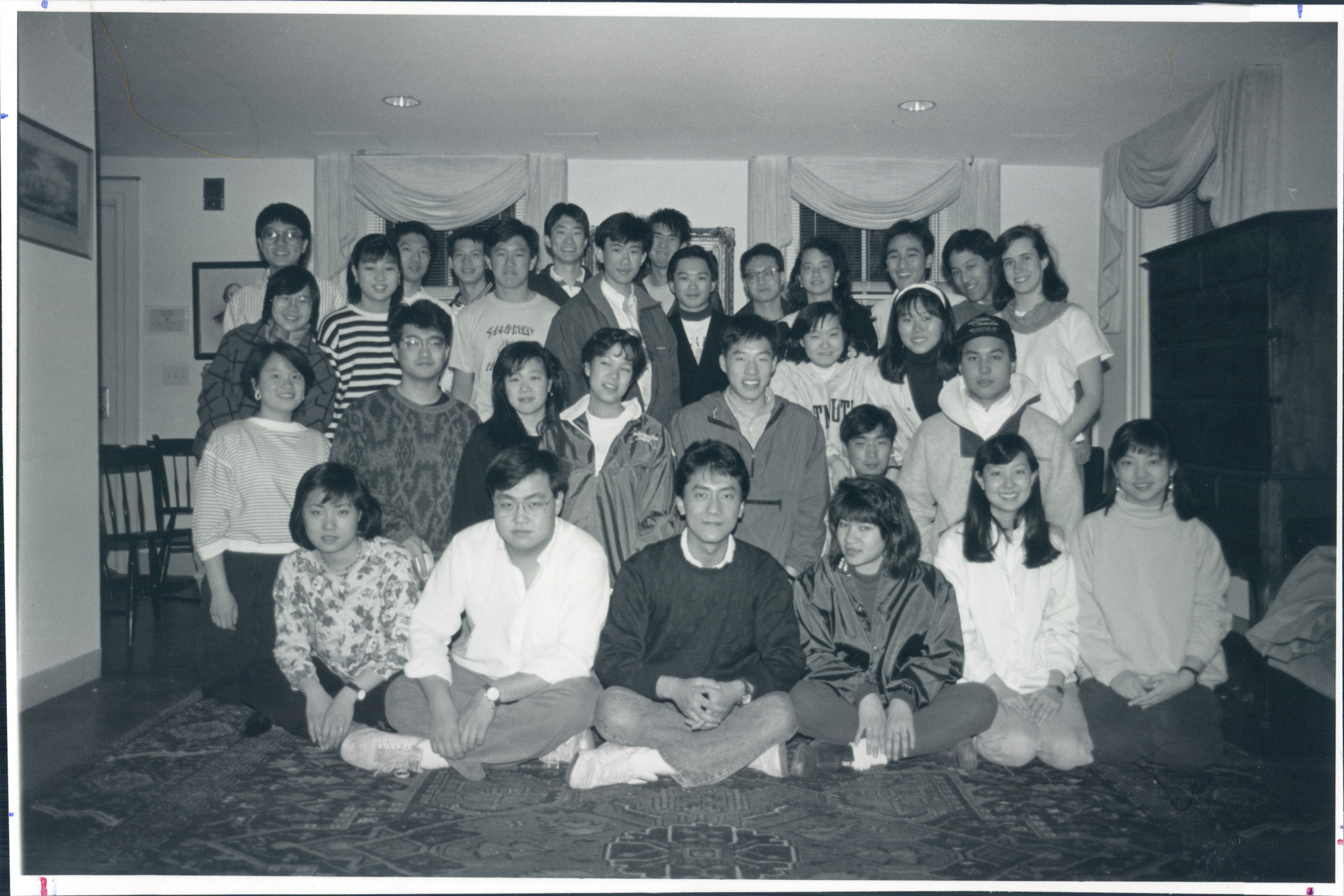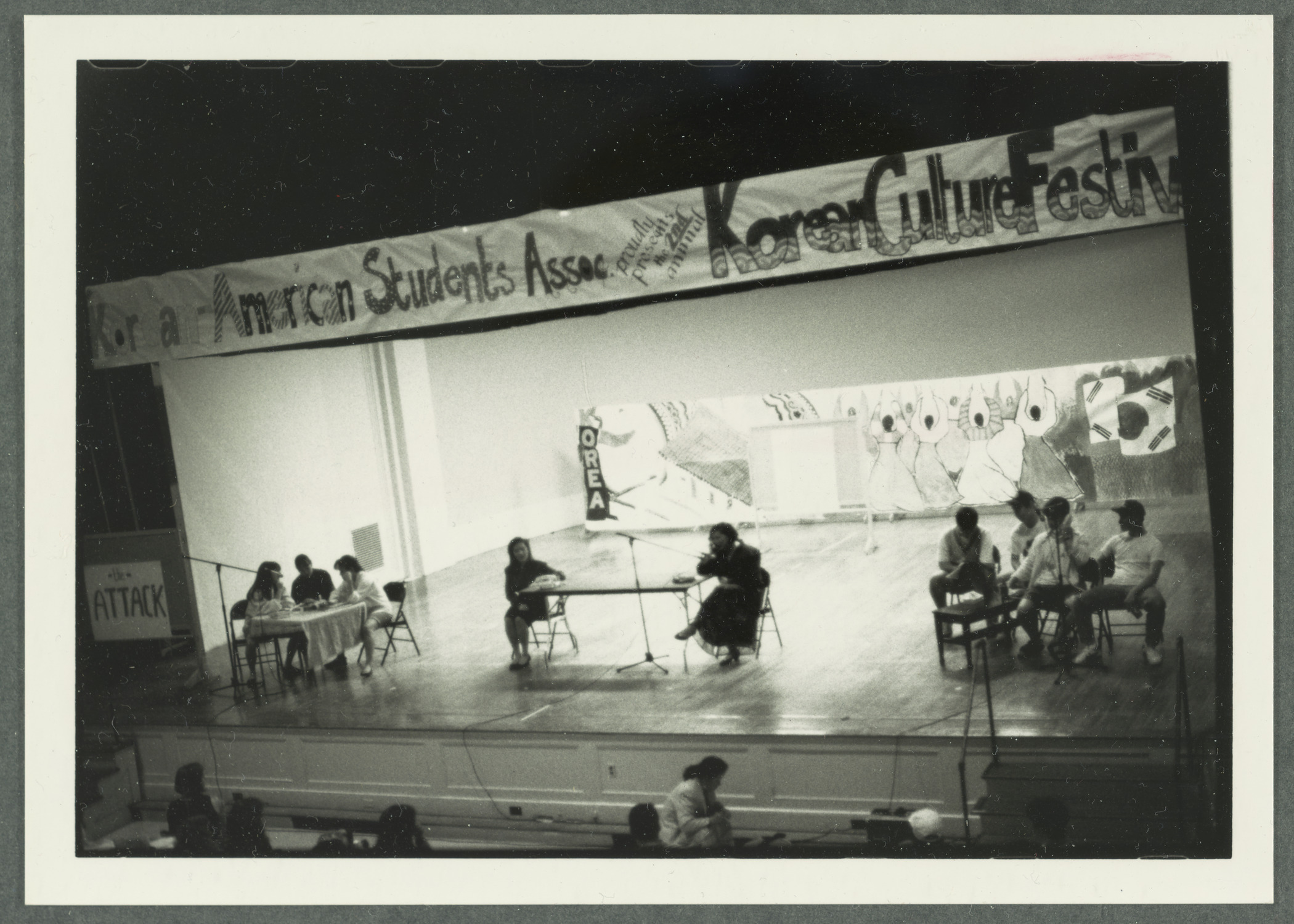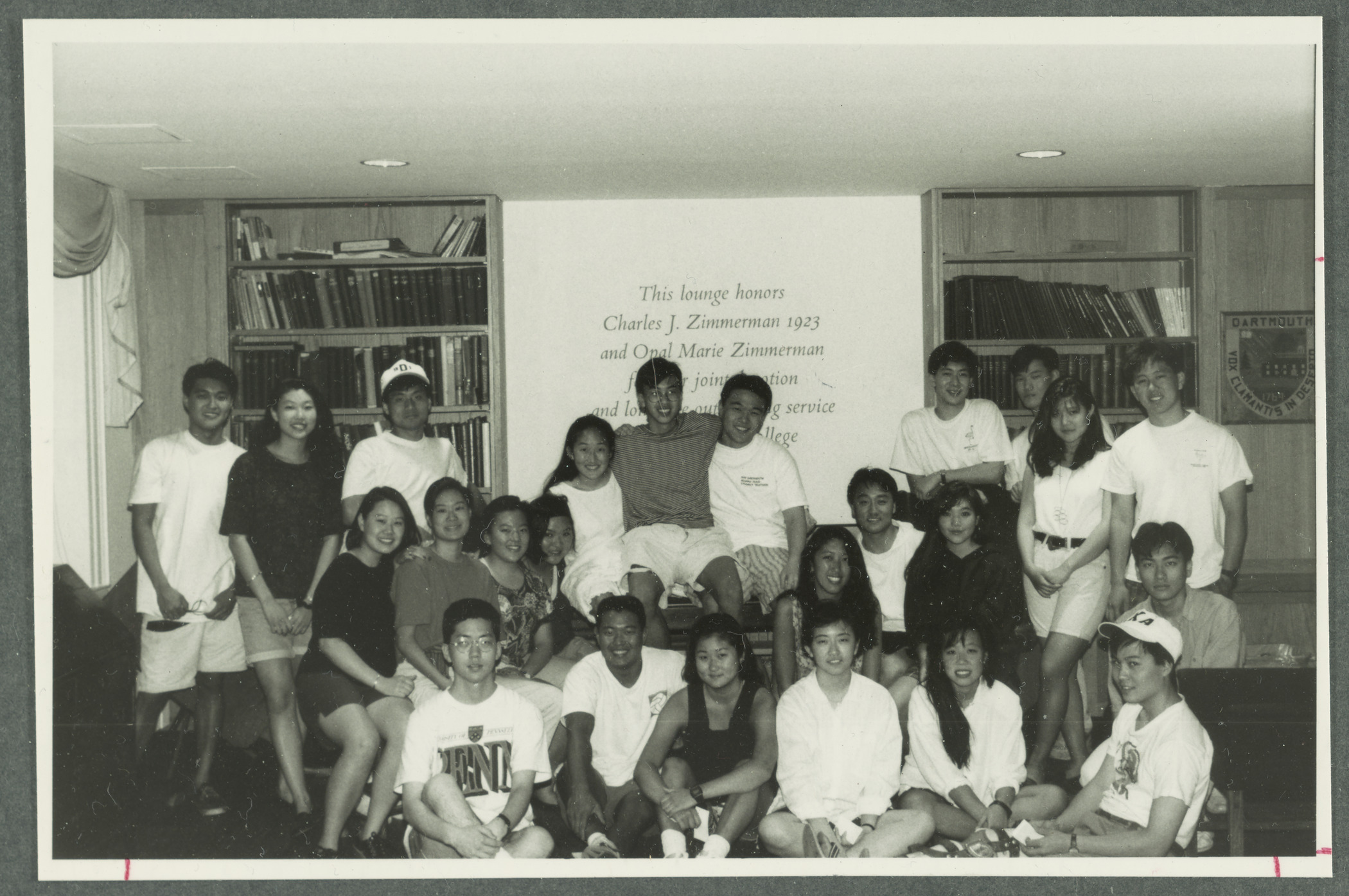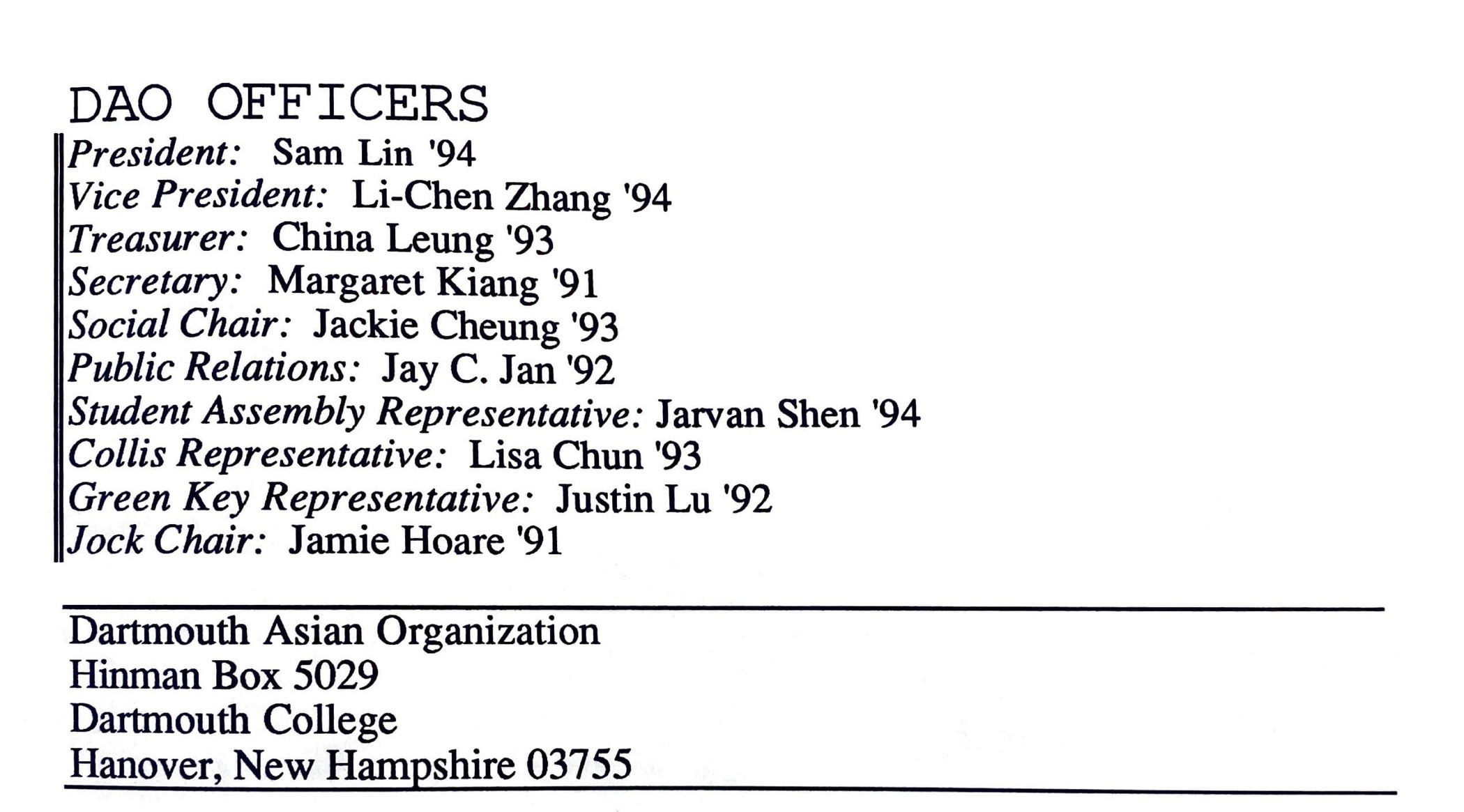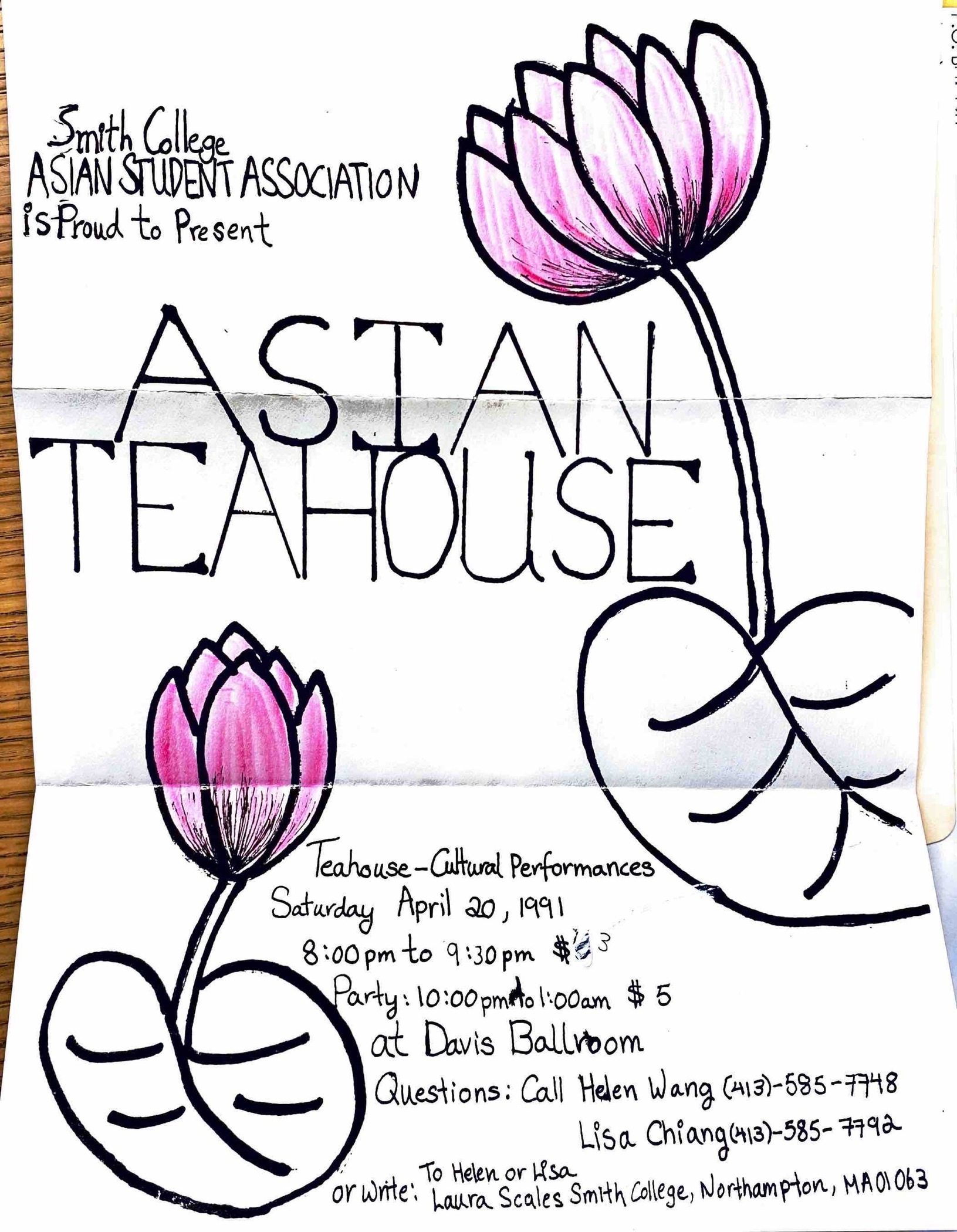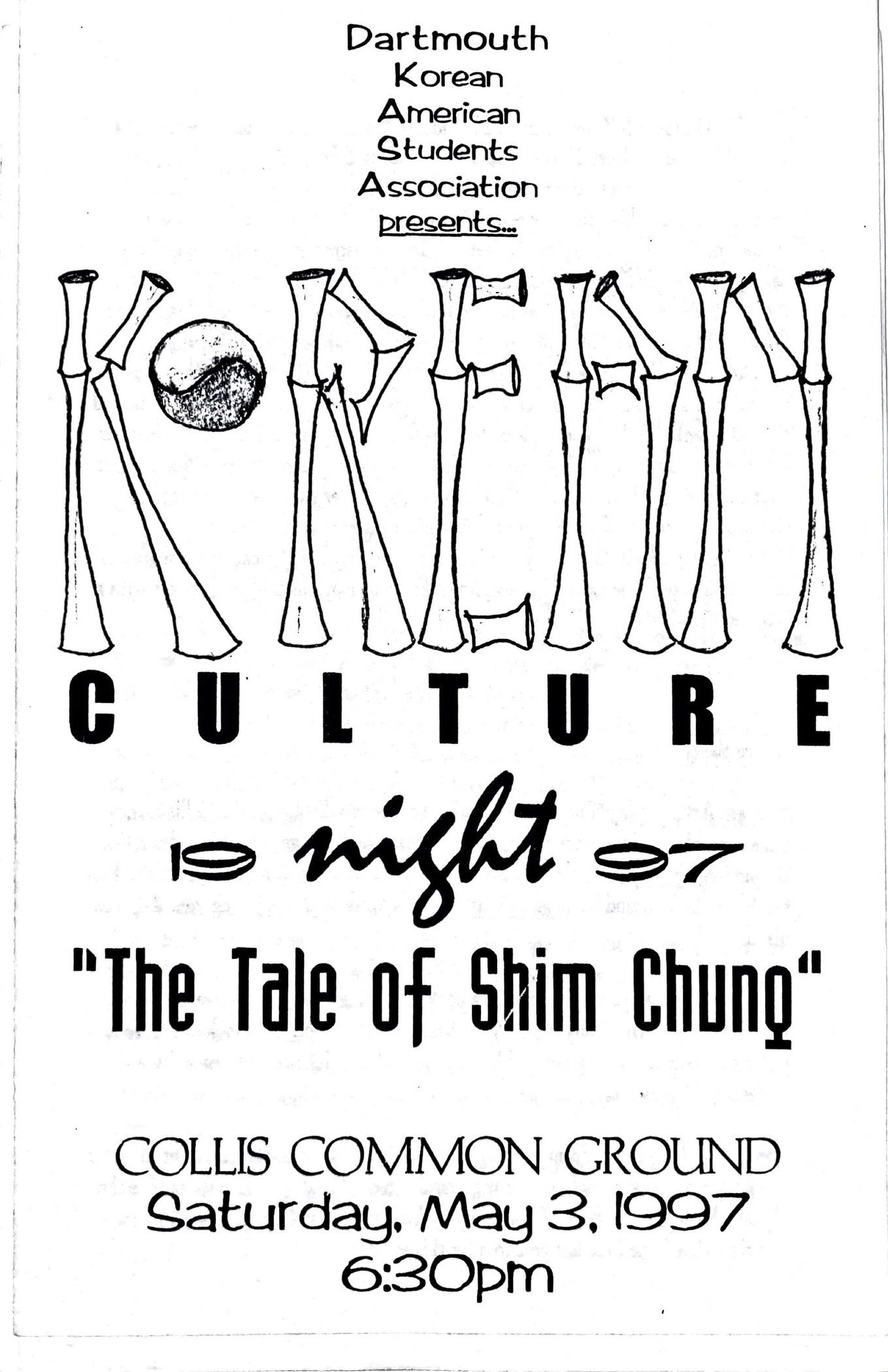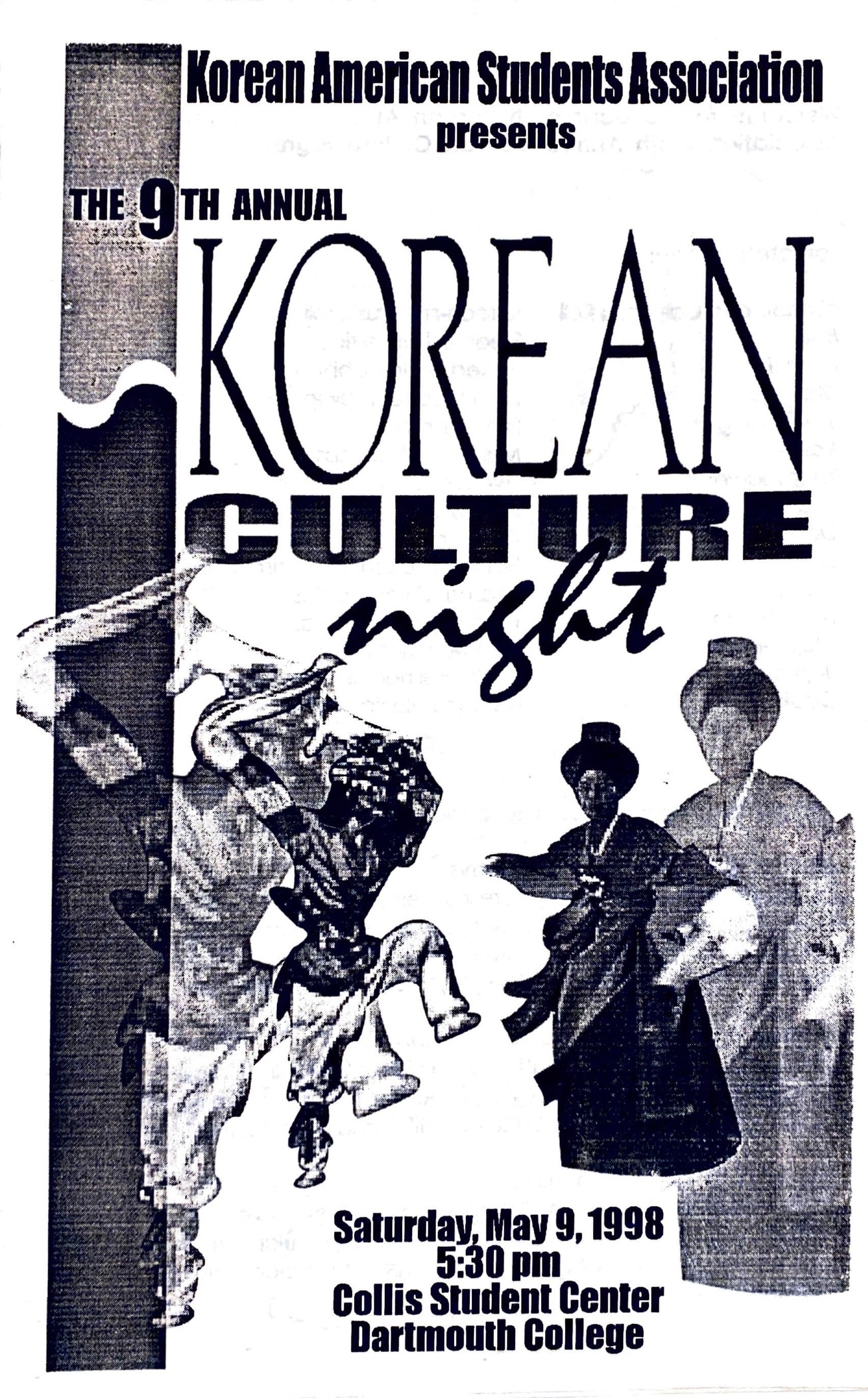Asian and Asian American Social Organizations
Students have built groups centering Asian and Asian American experiences throughout Dartmouth’s history. These groups opened themselves to any students interested in their goals and served as safe places for Dartmouth's Asian students to find those with similar experiences and interests to them.
This section summarizes the social groups officially recognized by the Council of Student Organizations (COSO) or the Tucker Center.
General Trends
Social organizations at Dartmouth have some of the highest rates of membership and attendance compared to other groups. From the 2010s onwards, there is a visible decline in the level of involvement in student organizations, with large social organizations seeming to scale back their event offerings while newer groups went inactive. There are a few possible factors for this decline:
- The increase in Greek life participation by Asians and Asian Americans
- The irregular admittance of students from specific Asian countries and backgrounds
- The effects of the pandemic and virtual programming
- The increased prevalence of social media
- The departure of Nora Yasumura, the Pan-Asian Community advisor
The 1970s: An Era of Collective Asian Belonging
The 1970s saw a low number of Asians at Dartmouth, and two main organizations accommodated a wide range of student backgrounds.
Between 1969 and 1971, the International Students Association (ISA) was formed with the goal of connecting international students on campus. It is unclear what initiatives were started by the group. The eventual inactivity of the ISA left international students without a defined community until it was refounded in the 2000s. Though the earlier years of the ISA’s refounding proved to be a rocky start for the group, it now has high membership and programming.
The Dartmouth Asian Organization (DAO) was started in 1975 by Hoyt Zia ‘75 with the aim of fostering a sense of belonging for Asian American students. The organization aims to connect Asian and Asian American students and introduce the overall Dartmouth community to various Asian cultures.
The 1980s: The Rise of Culture Nights
Dartmouth Asian Organization and Milan introduced culture nights to Dartmouth.
In 1981, DAO was officially recognized by COSO. The organization expanded its programming in accordance with the increasing number of admitted Asian American and international Asian students. As other Asian cultural groups have not yet been created, DAO was filled with Asian students from various backgrounds. The organization hosted culture nights, an event that showcases performances and skits centered around a certain theme. These events provided food and featured a collaboration between many student groups. DAO culture nights were well-known on campus, with an average attendance of 200+ students of both Asian and non-Asian descent. The group also organized skiing trips, cooking nights, and more for members.
As DAO grew in membership and presence, other Asian student groups were created. In 1983, Al-Nur was recognized by the Tucker Center as a community for Muslim students. In 1987, Milan was recognized by COSO as a social group for students with ties to the Indian subcontinent. The group held events such as informal gatherings, lectures, and cultural activities. Milan also hosted culture nights that had a similar structure to those hosted by DAO.
"We had a completely filled hall every KASA culture night. There were lines all the way to the HOP from Webster Hall."
Steve Hwang '90, former President of KASA
The 1990s: The Cultural Organization Boom
The 1990s were a time of strong Asian presence at Dartmouth.
In 1991, the Korean American Students Association (KASA) was recognized by COSO. The association was formed with the goal of building a better understanding of Korean language and culture. In addition to hosting large culture festivals, they also collaborated with Korean Associations at other universities. Including those at Princeton, Brown, and Mount Holyoke. That same year, the Dartmouth Japanese Society (DJS) was started with similar goals for Japanese culture. The organization was well-supported, with around fifty registered members upon formation. Unlike other cultural affinity groups, DJS seemed to have high non-Asian membership. In 1994, the Dartmouth Chinese Culture Society (DCCS) was started to share Chinese heritage with members of campus. The group aimed to include students from any places where Chinese culture and/or languages were dominant. DAO, KASA, DCCS, and Milan hosted culture nights, which served as each organization's biggest event.
“(DCCS) is to be a venue for academic concerns regarding the People’s Republic of China, the Republic of China or Taiwan, the colony of Hong Kong, Singapore, Malaysia, and other regions of the Pacific Rim where Chinese language, heritage, culture, etc. is dominant”
Dartmouth Chinese Culture Society
In 1995, the Dartmouth Taiwanese Association (DTA) was also created with the purpose of connecting students of that background at Dartmouth. While it seems that there was considerable support from students, the organization went inactive in 1999. In 1996, the Hokupa'a Hawaiian Club was started with 33 founding members. The mission of the group was rather unique; Hokupa'a wanted to educate the wider Dartmouth community and the Upper Valley about Hawaiian culture. Additionally, instead of discussing the group as a space to connect Hawaiian students, Hokupa'a emphasized helping them assimilate into college life. In 1997, the Vietnamese-Southeast Asian Students Association (VSASA) was started to share and preserve Vietnamese culture at Dartmouth. While the group welcomed other Southeast Asian countries it seems that membership consisted largely of Vietnamese students.
As seen in the timeline of Asian organizations, the 90s also saw the creation of many political advocacy groups. For instance, the InterEthnic InterRacial Alliance and the Asian Pacific American Issues Forum (APAmIF). None of these organizations exist today.
The 2000s and 2010s: What Happened to the Asian Groups?
There is a downwards trend in the activity of newly created groups.
According to our archival sources, only three new Asian social organizations were founded in the 2000s. Two of these, Shanti and Cluba Singapura, were founded in 2002. Shanti is an Hindu organization that hosts religious events through the Tucker Center. Each year, they hold large events such as Diwali that are well-attended by students and the Upper Valley community. The organization is still active today and has membership in the hundreds. Cluba Singapura was started to connect Singaporean students. Not long after its founding, but it went inactive not long after its inception. In 2007, the Dartmouth Hong Kong Students' Organization was founded. Although there was a period of inactivity in the 2010s, the club is alive today. Overall, large, open-to-campus cultural events were not a facet of most of these groups unlike DAO, KASA, or DJS. Unlike earlier social organizations, it seems that most of the organizations founded during the 2000s saw a period of uninvolvement from members.
This trend continues into the 2010s as two of the three social, culture-based organizations created during this decade are inactive today. In 2011, the Tuk Tuk Thai Association was started with the goal of connecting Thai students on campus. Membership consisted mainly of Thai international students and the organization ended after two rounds of leadership handover. Similarly, the Filipino Students Association at Dartmouth was started in 2018. In 2019, the Dartmouth India Association was founded and is still active in the present day. The club hosts cultural celebrations (e.g. Holi), movie nights, and meet and greets.
A possible cause of this decreased activity is the departure of Nora Yasumura, the Pan-Asian Community advisor. During Nora's time at Dartmouth, constant communication was facilitated between different Asian groups through the Pan-Asian Council. This made large events easier to coordinate, and students had a staff member they could refer to for advice and further information, highlighting the importance of faculty and staff support to the flourishing of social groups.
While organizations hosted culture nights in the 2000s, they seemed to have scaled down such events in the 2010s.
Despite varying levels of activity from newer clubs, existing social groups maintained their presence on campus. During the 2000s, DAO continued to host culture night, but with a larger focus on showcasing aspects of Asian American identity. In addition to DAO, DCCS, KSA (formerly KASA), and Milan continued to host culture nights. All groups also hosted formals, which are events more commonly seen in Greek life.
"We wanted to do more with culture nights. We wanted to highlight different parts of the Asian American experience to the rest of campus."
Ariel Xue '08, former President and Culture Night Chair of DAO
All these organizations seem to have scaled back their culture nights in the 2010s. Instead of extensively planned events with performances, skits, and food, organizations started focusing on hosting each aspect separately. It is unclear why organizations went in this direction.
The 2020s: Social Groups During Social Distancing
The pandemic limited the ability to coordinate socially-meaningful action and upended the direction of certain organizations.
Lockdown heavily affected students in the Classes of 2020 to 2024. In interviews with current students, freshmen that came to Dartmouth during this period stated that relationships were mainly established through physical proximity. For example, students often befriended peers in the same residential floor or building. Some Asian and Asian American-related programming continued through the pandemic, such as Asian American Pacific Islander Heritage Month (AAPIHM) events. However, many organizations did not move events online, and any virtual events or meetings had low turnout.
"We had an average of 10-12 students attend AAPIHM events before the pandemic. During the virtual years, this number decreased to 5 students or less."
Connie Lu '22, member of 4A and AAPIHM
The pandemic also forced a handover of leadership to the next class. As some student leaders graduated before lockdown measures were lifted, new leaders managed organizations for the first time in fully in-person settings. Additionally, many students were introduced to student groups during the pandemic. These different circumstances meant that new members did not have a clear idea of organizations' values and ambiance prior to lockdown, and many groups suffered from lost traditions and institutional memory. In interviews with alumni, many were surprised to hear the changes that have occurred within groups after the pandemic.
Post COVID-19, smaller Asian demographics had the opportunity to construct official social organizations.
In 2021, COSO recognized the Thai Student Association (TSA) and the Singapore Students' Association (SSA). TSA is a very small organization of roughly 10 members, which is mainly attributable to the low number of admitted students identifying as Thai or Thai American. Prior to 2021, they did not have enough students to petition to for a COSO-recognized club. Most of the organization's events are internal, consisting of social dinners with Thais in the Upper Valley and game nights. They also host Songkran, an larger, open-to-campus event that celebrates the Thai New Year. SSA currently has 35 members, with membership consisting of mainly non-ethnic Singaporeans who have some sort of connection to the country. They regularly host dinner/hotpot events, especially during Chinese New Year. In 2022, the Dartmouth Pakistani Student Association was established. Currently, they do not advertise any major events. However, their proposed closed events include cricket watch parties, Ramadan iftars, and Bollywood music nights. In 2023, the Dartmouth Afghan Students Association was also started. According to a COSO representative, the Afghan Students Association previously did not have enough members to gain recognition. The recent creation of these culturally-specific groups suggests that Dartmouth's admissions process influences the ability to form official social spaces for certain demographics of Asian and Asian American students.
While the establishment of some of these associations may seem like a resurgence of past organizations, they are merely analogous. In interviews with TSA and SSA, members confirmed they were unaware of the existence of past organizations that set out to achieve similar purposes. This lack of institutional knowledge demonstrates a missed opportunity for cross-generational communication and learning.

